Impact of Content Marketing on Consumer Behaviour: How Effective Content Increases Sales
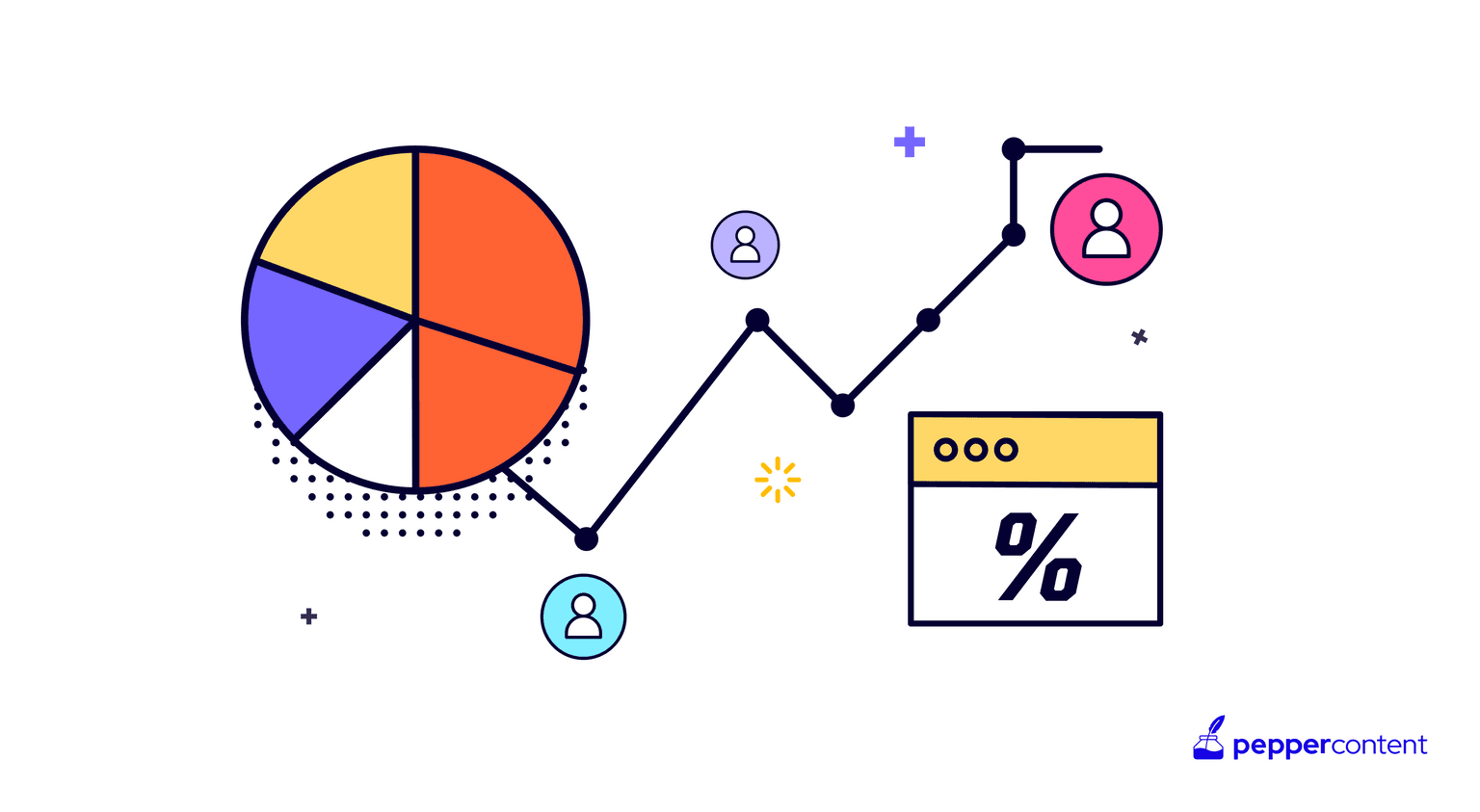
Are you tired of seeing your marketing campaigns fail to convert leads into sales? Do you want to know how to create more engaging content that resonates with consumers? This is where content marketing comes in. The impact of content marketing on consumer behavior is undeniable, and it has become a crucial aspect of modern marketing.
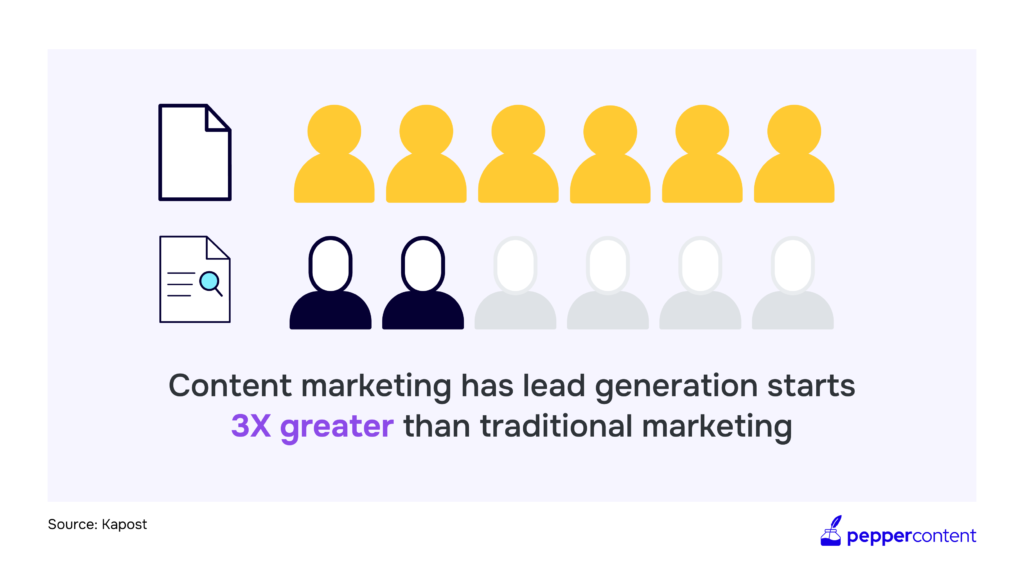
Moreover, creating high-quality, relevant content can drive sales and build genuine relationships with customers. In fact, companies that embrace content marketing see an increase in revenue by up to 30%. But don’t just take our word for it; the statistics speak for themselves. According to DemandGen Report, 70% of customers prefer to learn about a product through content rather than through traditional advertising methods.
This article will explore the different ways in which effective content increases sales and discusses key metrics for measuring content effectiveness, as well as provide real-life examples from leading brands such as Coca-Cola and Airbnb. Let’s dive in!
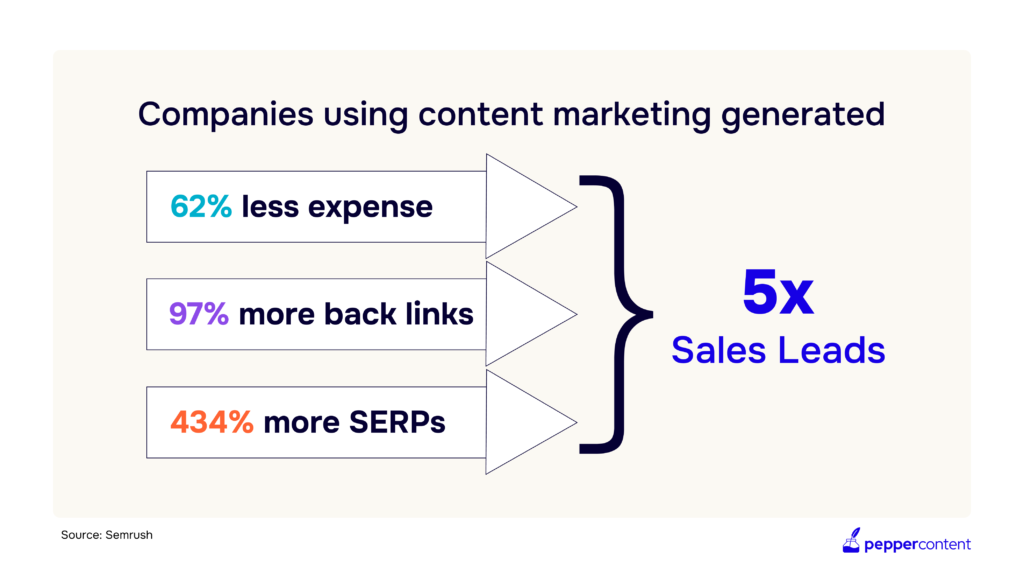
Creating Relevant Content That Speaks to Your Target Audience
The impact of content marketing on consumer behavior is evident in the way high-quality, relevant content can be used to gain recognition, break the ice, build trust, and ultimately increase sales. Today’s customers don’t want to be sold to; they want their problems solved. Companies that create content that solves their target audience’s problems are more likely to have high engagement rates and conversions.
One example of a company that mastered this art of content creation is Coca-Cola. Their ‘Share a Coke’ campaign allowed customers to personalize their bottles by printing their names or name variations on them. This led to a 2% increase in sales globally, according to USAToday. The winning strategy was that the personalized bottles not only got customers excited, but it created emotional connections with the brand.
Creating relevant content requires an in-depth understanding of your target audience’s needs, wants, and pain points. It means using your creativity and storytelling skills to deliver valuable information that addresses their problems.
For instance, if your target audience is interested in fitness and losing weight, you can create short videos demonstrating effective workout routines or offer expert advice on how to maintain a healthy diet. By doing so, you will be positioning yourself as an authority in the fitness industry while providing valuable information that your target audience craves.
In essence, creating high-quality, relevant content is critical to driving sales through content marketing. It is no longer sufficient to produce random blog articles or social media posts; businesses must produce targeted content that resonates with their specific audiences to achieve results.

Optimizing Your Content for Search Engines
As content marketers, we all know the importance of creating high-quality, engaging content that resonates with our audience. But what good is that content if no one can find it? This is where search engine optimization (SEO) comes into play. By optimizing your content for search engines, you can increase visibility and attract potential customers to your website.
One of the key elements of SEO is keyword research. By identifying relevant keywords and incorporating them strategically into your content, you can improve your chances of ranking higher in search engine results pages (SERPs). Long-tail keywords, in particular, can be highly effective in driving organic traffic to your website.
Are you struggling to find the right keywords for your website or blog? Look no further than Keyword Discovery! With keyword discovery, you can identify the keywords that your competitors are ranking for, but that you are not, and group thematically. This feature can help you build a Keyword Universe in just under 15 minutes. Click here to learn more about Peppr CMP.
Take HubSpot, for example. By incorporating long-tail keywords into their blog posts and other content marketing efforts, they were able to increase their organic traffic by up to 200%. This not only increased their visibility but also helped them attract leads and ultimately drive sales. You too can create such amazing content by availing SEO blog writing service.
But SEO isn’t just about keywords. It also involves optimizing your website’s technical structure and ensuring that it’s mobile-friendly. This is crucial since mobile devices account for over half of internet traffic today.
When done correctly, SEO can have a significant impact on your content marketing efforts. It can help you reach a wider audience and drive more traffic to your website. This, in turn, increases your chances of converting those visitors into paying customers.
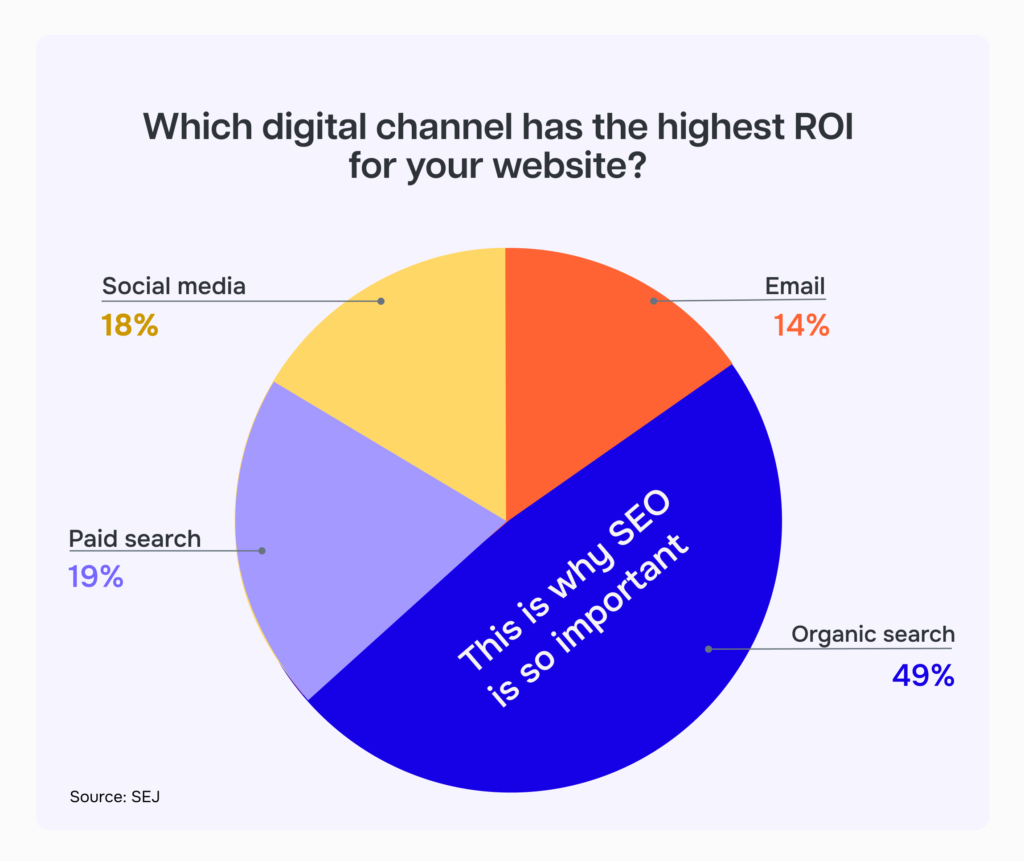
Analyzing Metrics and Data for Improved ROI
As a content marketer, it’s essential to measure the success of your campaigns. This is where metrics come in. Looking for the right signs can help you make informed decisions, improve your content, and increase your ROI.
Click-through rates (CTR) are one of the most commonly used metrics. It measures the number of clicks on a link or call-to-action in your content. High CTR is an indication that your content is engaging and resonates with your audience.
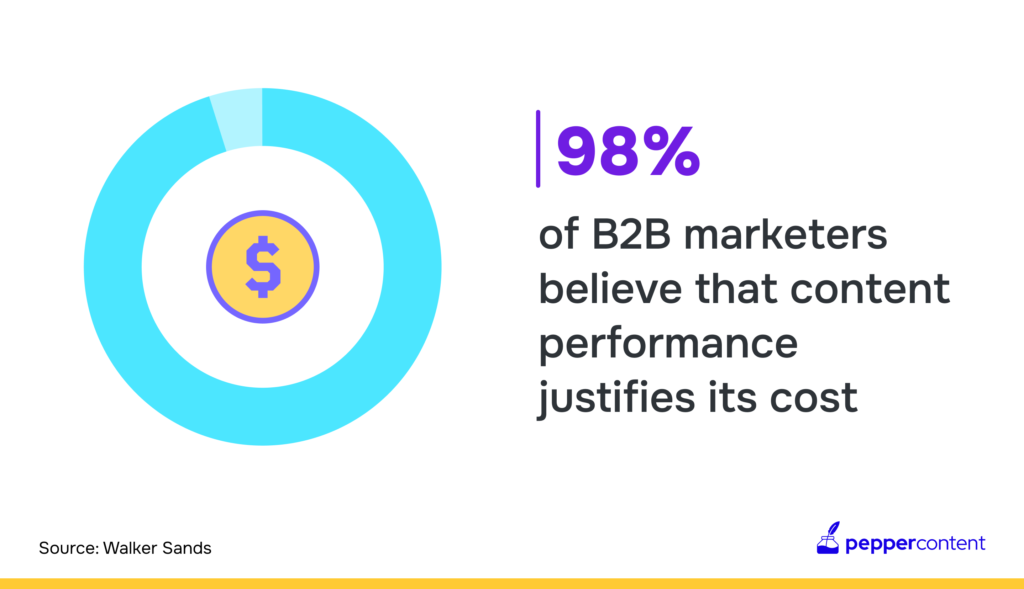
Engagement rates are another crucial metric to measure. It measures how your audience interacts with your content; likes, comments, shares, etc. High engagement rates are an indication that your content is not only being consumed but also appreciated by your audience.
Conversion rates are perhaps the most important metric for marketers. It measures the number of people who take a desired action after consuming your content. A high conversion rate means that your content is compelling and persuasive.
One excellent example of effective content marketing is Airbnb’s Neighborhood Guides. The guides provide travelers with valuable information about different neighborhoods, including local attractions and events. This strategy helped increase customer engagement and booking rates by over 30%, according to reports.
By analyzing various metrics such as engagement rates and conversion rates, marketers can optimize their approach for better results. With these insights, they can tailor their strategies to better resonate with their target audience.

Why Content Marketing is More Effective Than Paid Advertising
Are you tired of spending money on paid advertising? It’s time to switch gears and invest in content marketing. Research shows that content marketing is three times more efficient than paid search. In fact, 82% of marketers who regularly publish content on blogs see positive ROI compared to those who don’t.
The reason for this effectiveness is simple: consumers are tired of being bombarded with ads everywhere they go. They want valuable, relevant, and engaging content that helps them solve their problems or entertain them. By creating such content, you not only cut through the noise but also build trust and relationships with your customers.
In addition, content marketing has a longer shelf life than paid advertising. A well-written blog post or a helpful video can continue to attract traffic and generate leads for months or even years after its publication. On the other hand, a paid ad disappears as soon as the budget runs out.
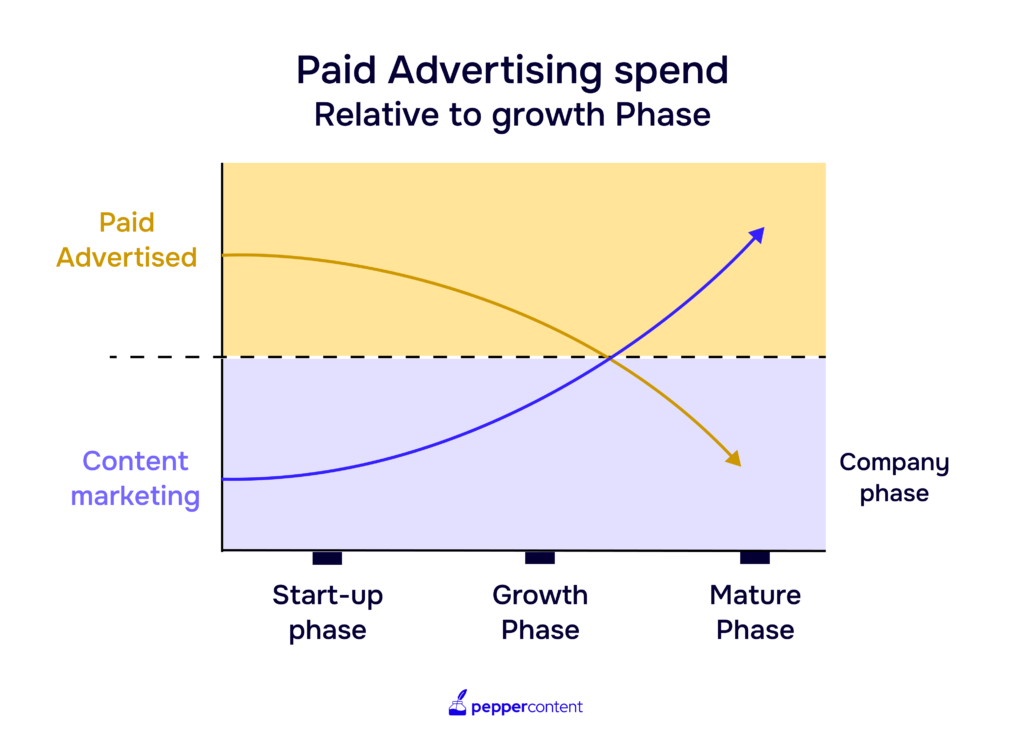
Investing in content marketing may require more upfront effort and resources than paid advertising, but the long-term benefits are worth it. You’ll not only attract more customers but also retain them for longer periods. So, stop pouring money into paid ads and start creating high-quality, relevant content that resonates with your target audience.
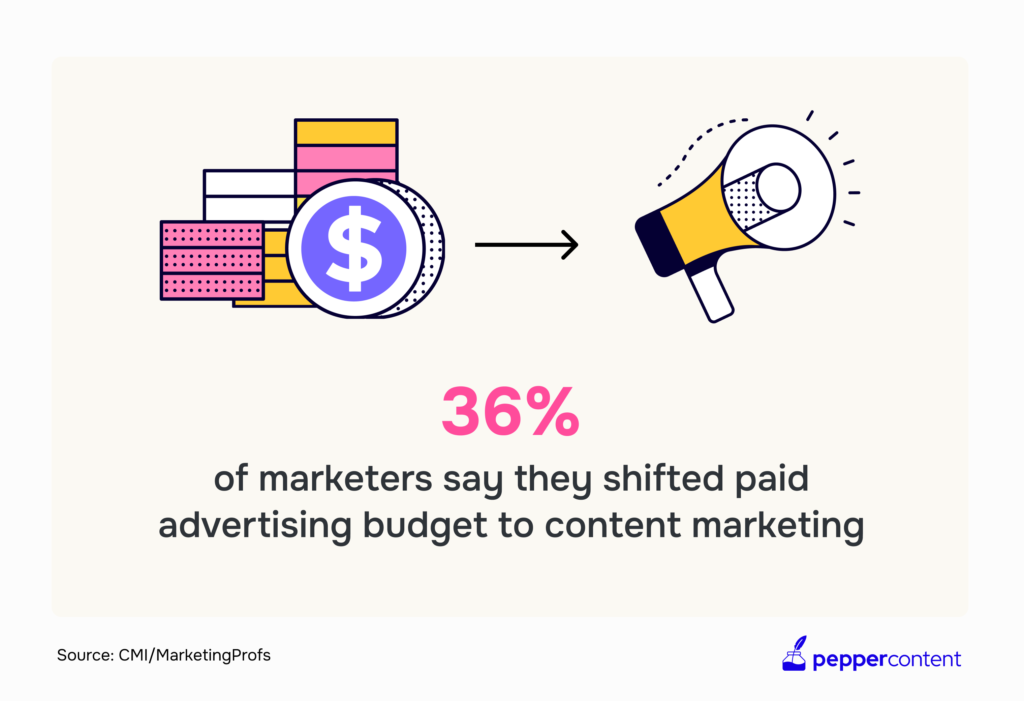
In conclusion, quality content is the key to driving sales and building relationships with customers. By creating relevant content that speaks to your target audience, optimizing it for search engines, and measuring content effectiveness through key metrics, you can achieve positive ROI in your content marketing efforts like never before and witness the impact of content marketing on consumer behavior.
As demonstrated by real-life examples from Coca-Cola, HubSpot, and Airbnb, effective content marketing can increase sales by up to 30%. So why wait? Implement these strategies today and see the impact of content marketing on your bottom line!

FAQs
1. What is the impact of content marketing on consumer behavior?
The impact of content marketing on consumer behavior is substantial. By providing high-quality, relevant, and engaging content, you can gain recognition, build trust, and create a genuine relationship with your target audience. This ultimately leads to increased sales and customer loyalty.
2. How can I measure the effectiveness of my content marketing campaigns?
To measure the effectiveness of your content marketing campaigns, you need to track key metrics such as engagement rates, click-through rates, conversion rates, etc. Analyzing these metrics will help you identify which strategies are working well and which ones need improvement.
3. Is it necessary to optimize my content for search engines?
Yes, optimizing your content for search engines is crucial if you want to increase visibility and drive traffic to your website. By using relevant keywords and following platform requirements for meta tags and descriptions, you can improve your chances of ranking higher in search engine results pages (SERPs).
4. How do I create high-quality, relevant content that speaks to my target audience?
To create high-quality, relevant content that speaks to your target audience, you need to understand their pain points, interests, and preferences. Conduct market research or customer surveys to gather insights into their needs and tailor your content accordingly.
5. How does content marketing compare with paid advertising in terms of efficiency?
Content marketing is often more efficient than paid advertising because it creates a lasting impression on customers. Paid ads tend to be seen as intrusive and are easily forgotten once the ad is over. Additionally, creating good quality content can be more cost-effective in the long run as opposed to continuously paying for ad space.
Latest Blogs
Explore how Google’s 2025 AI search updates triggered ranking chaos. Learn actionable strategies to adapt your SEO for AI Overviews, zero-click searches, and SERP volatility. Stay ahead now.
Learn how to rank on AI search engines like ChatGPT, Perplexity, and Gemini by optimizing your content for authority, structure, and relevance. Stay ahead in AI-driven search with this strategic guide.
Explore the best healthcare SEO services for your medical practice. Improve online visibility and effectively reach more patients in need of your services.
Get your hands on the latest news!
Similar Posts

Content Marketing
4 mins read
11 Best B2B Content Marketing Agencies for B2B Companies in 2024

Content Marketing
5 mins read
Top ecommerce Marketing Agencies with Proven Strategies for 2024

Content Marketing
5 mins read